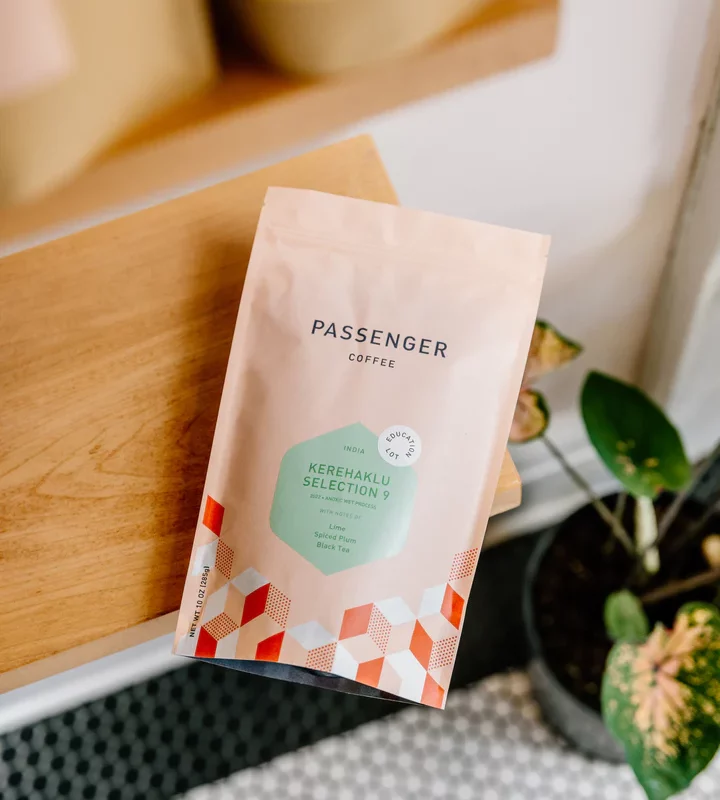
About this Coffee
On the nose, this unique arabica variety selection from Kerehaklu Estate exhibits inviting nut butter sweetness and citrus peel notes that lead to a mouth watering profile in the cup. Lime peel, and sour cherry bring a refreshing citric acidity that’s supported by a warming base of black tea, spiced plum, and molasses in the finish.
This Education Lot addition offers a uniquely fermented washed arabica cultivar that represents Passenger’s first time working with the impressive father and son duo of Ajoy and Pranoy Thipaiah at Kerehaklu Estate in Chikmagalur, India.
Some of the finest coffees being produced in India today come from the Chickmagalur region in the southwest state of Karnataka, where coffee was first planted in India in the 17th century. According to historical record, the 17th century sufi monk Baba Budan smuggled arabica coffee seeds to India from Yemen where, at the time, export of coffee was tightly controlled, with coffee only leaving Yemen in a roasted or boiled state so as to prevent propagation of the crop elsewhere. After successful cultivation in India, the hills that became home to the many flourishing coffee estates in the mountainous Western Ghats came to be eponymously known as the Bababudangiri. While it remains the case that India is one of the largest producers of robusta coffee in the world today, it’s also true that India is capable of producing high quality arabica coffee, a fact that the specialty market has only more recently begun to recognize and appreciate.
The Kerehaklu Estate in Karnataka is run by father and son duo Ajoy and Pranoy Thipaiah, who’s combined knowledge of biology, agronomy, and agriculture comes together to create some of the most compelling coffees from India that we’ve had the opportunity to taste. The lush Kerehaklu estate is home to dense old-growth forest that’s rich in biodiversity and supportive of arabica, robusta, and liberica species, as well as the occasional itinerant elephant or tiger.
This lot, as is true of the majority of the coffee produced at Kerehaklu, is processed using a controlled anoxic (or low oxygen environment) fermentation. The present selection underwent a 32 hour anoxic fermentation before being washed and then moved to raised beds inside of the Thipaiah’s impressive ventilated ‘poly-houses’ for drying. The variety, known as ‘selection 9,’ is a cross between an ethiopian landrace variety called tafarikela and the rust resistant timor hybrid variety, and is one of a handful of different numbered hybrids known as ‘selections’ that are ubiquitous throughout coffee production in India. In 2002, selection 9 entries into the ‘Flavour of India Cupping Competition’, held by the Coffee Board of India took top honors, and the variety has remained popular among arabica producers in India since . We’re truly excited to have the opportunity to present Pranoy and his father’s coffee for the first time, and we hope to be able to continue to invest in their vision in future harvests.
To learn more about this coffee and Kerehaklu, we encourage you to head over to our Blog section to read selections from an interview we recently did with Pranoy.